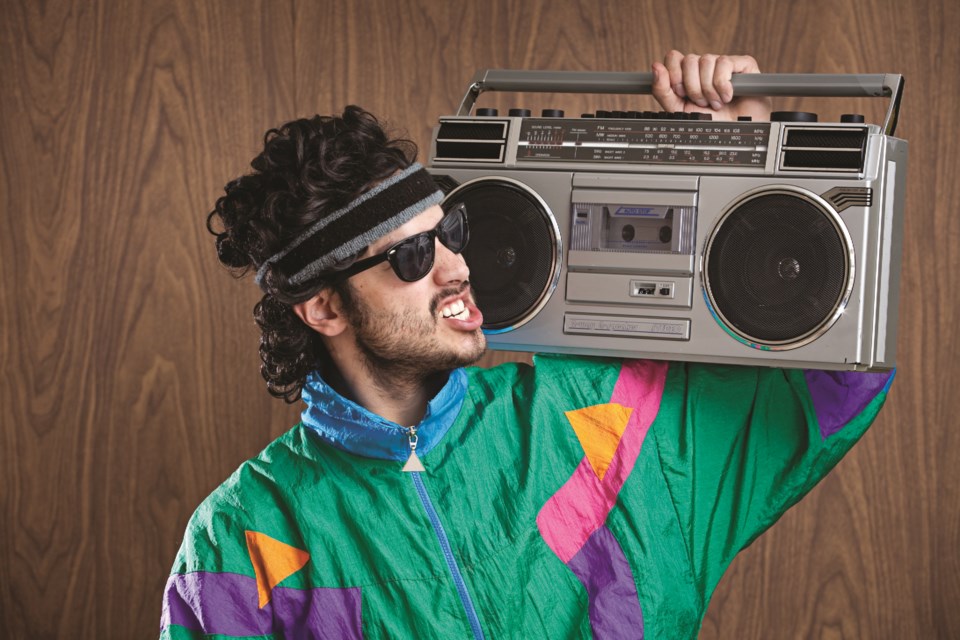I was about to start this column with a cranky anecdote about the time I was jarred from my outdoor experience courtesy of a Bluetooth speaker or backpack-mounted sound system, but there are just too many times this has happened to relate it to one specific incident. Earlier this week, a Tweet surfaced that made the rounds on the greater internet, not just in the outdoor community, but in what I’ll reluctantly term mainstream culture. It read: “Stop bringing shitty Bluetooth speakers on hikes. No one came to the woods to hear you listen to Katy Perry.”
And just like that, a sea of long-winded social media comments, angry letters to the editor and general grumbling in the public forum was summarized so succinctly that it got viral traction, saying what so many have felt for years.
If you read this column two weeks ago you’re probably familiar with my aversion to crowded BC Parks hiking trails, which are the likeliest venue for said travelling jukeboxes. But as trails get more and more popular and Bluetooth speakers get smaller, cheaper and more annoying, the proliferation of noise pollution will continue deeper into the backcountry.
I don’t really understand the need or desire to have tunes blaring in one’s natural surroundings, but let’s start with some common sense guidelines.
Headphones are always an option, so why the blaring of pop music? Is it supposed to be some sort of rallying point for fellow douchebags? Even if you’re hiking in a group, having your headphone music at low volume in one ear will allow a decent level of situational awareness such as approaching wildlife or other hikers wishing to pass. Conversations between party members can still happen while feeling the groove of music in your happy outdoor space.
The same goes for the ski hill. Those godforsaken backpack stereos have been around far longer than Bluetooth speakers, the bearers somehow thinking that dozens of other people in the lift line are experiencing the same vibe. I’ll happily speak for the dozens of people in the lift line when I say this: we don’t need your shitty music to liven up our ski day, nor do we need the jarring Doppler effect of your music when blowing by you on the cat track. Again, headphones are commonplace and acceptable; if you need a loudspeaker for your friends to find you, you’re doing it wrong. Thankfully the Bluetooth speaker hasn’t made its way to winter skin tracks yet, though I’m sure the people who blast their music in crowded backcountry huts are the most likely to do so.
I find it slightly more acceptable for groups with speakers that set up in a particular spot for a picnic or a camp, provided they keep the volume at a tolerable level and other groups can maintain distance. The top of the Chief or the summit of Black Tusk in the summer doesn’t really qualify for that. Chilling by the Khyber’s smoke shack in the winter more so.
Then there are the waterproof Bluetooth speaker owners who insist on paddling to the soundtrack of their lives. The cool air near the water’s surface refracts and slows sound waves, effectively amplifying the sound across the water. Still or calm water reflects sound too, adding to the amplification. This is why you can hear the voices of partiers at Rainbow Park from the other side of Alta Lake. The solution? You guessed it. Some water-proof headphones.
This isn’t a rant against music or even music in the outdoors. It’s simply acknowledging that there’s a time and a place to turn on that Bluetooth speaker and that isn’t when you’re moving through an outdoor area, whether on foot, on skis, by bike, by watercraft or otherwise. Boomboxes were popular in the ‘80s and were instrumental in the rise of hip hop in urban communities, though that subculture waned after people got sick of hearing them on every street corner and a little piece of personal audio technology called the Walkman came along. The Bluetooth speaker holds no such cultural gravitas that the Boombox did in its heyday. As photojournalist Lyle Owerko describes in his book The Boombox Project: The Machines, the Music, and the Urban Underground: “Towards the end of any culture, you have the second or third generation that steps into the culture, which is so far from the origination, it’s the impression of what’s real, but it’s not the full definition of what’s real. It’s just cheesy.”
I rest my case.
Vince Shuley enjoys the sound of nature. For questions, comments or suggestions for The Outsider email [email protected] or Instagram @whis_vince




